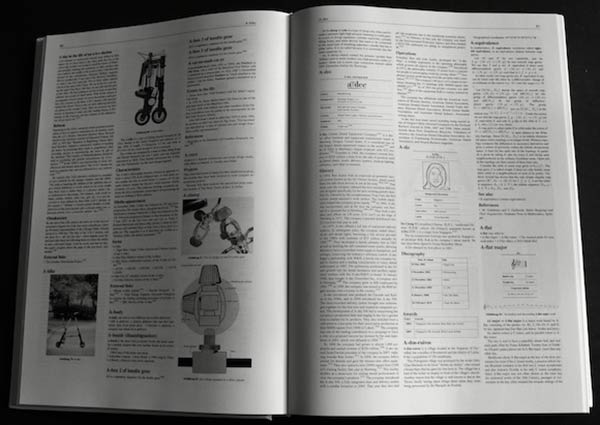Wikipedia, the crowdsourced encyclopaedia, a reference tool available in 287 languages, holding over 30 million articles and currently the sixth most popular website in the world, might soon become a printed work.
The proposed book will contain more than 4 million English-language articles spread over 1 million pages. A Wikipedia Books Project campaign on crowdfunding site Indiegogo has been set up to help realise the project. The team behind the campaign are from PediaPress, Wikimedia Foundation's official print-on-demand partner.
"We think that the best way to experience the size of Wikipedia is by transforming it into the physical medium of books," the team wrote on the Indiegogo campaign page. "Containing the most volumes and edited by the largest number of contributors the printed edition will be a work of record breaking dimensions."
The Wikipedia Book Project, if it goes ahead, is expected to be first exhibited at the WikiMania conference due to be held at London's Barbican Centre August 2014. Then it will make its way around the world for exhibitions after which it will ultimately be donated to a "big old library". It will indeed have to be big; able to accommodate the 1,000 volumes of 1,200 pages each. However I think this is one case where an iPad purchase might be a better use of public resources.

Other goals for the project include printing live updates to Wikipedia on a continuous scroll throughout the exhibition, for attendees to visualise how frequently Wikipedia is updated. The team would also like to upgrade its printing plans to colour printing. However these goals are based on whether the team beats its target in their campaign.
The realisation of the project is based on at least $50,000 (£30,000) received through crowdfunding by the deadline of 11th April. The lowest accepted contribution is $5. For everyone who donates, their name will be published as a supporter on the project page. The project has only raised $2,000 of its $50,000 goal so far but there are 52 days left in the campaign.

A negative environmental impact from the project is obvious - with the idea of printing out millions of pages when it's not completely necessary to do so. That might well stifle the printing project's funding.
It may also be interesting for readers to know that, according to an interview with an anonymous PediaPress spokesperson on Metro, the team is not intending to edit any texts and mistakes in the printout. "It is not intended to be a resource for medical professionals or engineers. It is more conceptual and we will not change anything." That will save a lot on proof reading time and fees.













